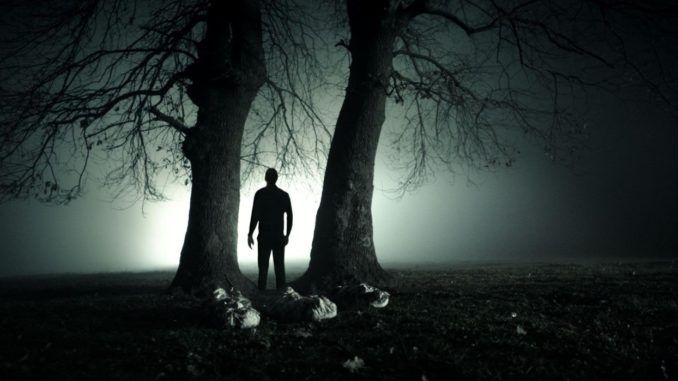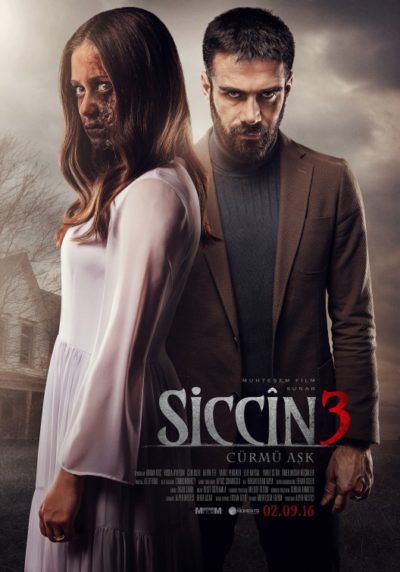
Rating: B-
Dir: Alper Mestçi
Star: Adnan Koç, Büsra Apaydin, Cem Uslu
The moral is, as usual, made clear by a caption at the end which tells us scholars of Islamic jurisprudence have concluded “It’s inappropriate for jinn and people to marry.” No shit. On the evidence this provides, the conclusion is about as blatantly self-evident, as a Papal edict declaring it’s not recommended for priests to diddle kids. There are a trio of characters at the core here: brother and sister Sedat (Uslu) and Kader (Apaydin), and their friend Orhan (Koç), who ends up marrying Kader. He’s the boss at a factory where Sedat also works, and things go awry after Orhan has to fire an employee for smoking in the flammable work environment.
The smoker, who has a lot of debt, takes poorly to this, committing suicide, and his widow unleashes a curse on Orhan: “I hope you have a dark end.” It doesn’t take long for things to go wrong, with a car accident leading to the death of Kader, and leaving Sedat’s son severely disabled. Orhan is understandably devastated by the loss of his one true love, and resorts to the dark arts to bring Kader back – or, at least, a fairly convincing simulacrum of his late wife. If you have read the first paragraph, you will probably be able to work out how well this works. The ripples of his dabbling in the occult affect Sedat and Kader’s family, over the week which follows.
 Matters come to a head after Sedat consults with a hodja. These show up quite often in the franchise, and seem to be somewhere between a psychic and a spiritual adviser. In the series, they’re basically a good way to do exposition dumps, and explain what’s going on. Though here, we don’t really get much of an explanation until the end, despite the fact Sedat is telling the story as a flashback. Interesting that Orhan never explicitly suffers any punishment for his actions. There’s a vague suggestion he might have killed himself at the end to be with Kader again, but it’s definitely not delivering on any sense of moral justice. It does, however, sustain the generally grim, downbeat approach. Happiness is fleeting, if ever experienced.
Matters come to a head after Sedat consults with a hodja. These show up quite often in the franchise, and seem to be somewhere between a psychic and a spiritual adviser. In the series, they’re basically a good way to do exposition dumps, and explain what’s going on. Though here, we don’t really get much of an explanation until the end, despite the fact Sedat is telling the story as a flashback. Interesting that Orhan never explicitly suffers any punishment for his actions. There’s a vague suggestion he might have killed himself at the end to be with Kader again, but it’s definitely not delivering on any sense of moral justice. It does, however, sustain the generally grim, downbeat approach. Happiness is fleeting, if ever experienced.
This runs 20-25 minutes longer than previous installments, and does result in somewhat languid pacing. Nowhere is this chill more obviously demonstrated that when Kader’s mom goes to the bathroom, where she sees the mirror shaking violently, and finds a magic spell placed by Orhan, taped to the back of it. Rather than freaking out, as I probably would, she simply cuts it up with scissors and flushes it down the toilet. This everyday approach to dealing with black magic is something you just don’t see in American or British horror movies. It may not have the same emotional wallop as part two, and I would have welcomed more explanation of Orhan’s actions. Yet it may be the darkest and most oppressive yet, in terms of overall atmosphere.
